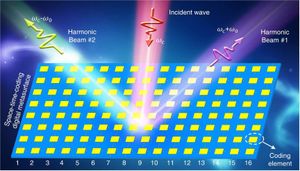Researchers have developed innovative chemical tools to study the activity of ubiquitin-specific protease 18 (USP18), shedding light on its role in lung cancer and potential therapeutic targets.
Ubiquitin-specific protease 18 (USP18) plays a pivotal role within the cellular response to viral infections and other immune stimuli, primarily through the modulation of the ubiquitin-like modifier, interferon-stimulated gene 15 (ISG15). This multifactorial enzyme is responsible for the removal of ISG15 from target proteins, making it key to various biological processes, including antiviral immunity. Despite its importance, the specific functions and mechanisms of USP18 remain poorly understood.
To effectively study USP18, researchers have introduced activity-based probes (ABPs) which incorporate unnatural amino acids to selectively detect USP18 over other cross-reactive deubiquitinases (DUBs) such as USP5 and USP14. This selective detection is important as it allows for more accurate profiling of USP18 activity across different cell types and conditions.
Using these newly synthesized probes, the research team employed chemical and proteomic techniques to map the activity of USP18 within lung cancer cell lines. A drug screening campaign identified WP1130 as a potential inhibitor of USP18, demonstrating this probe's capacity to evaluate therapeutic strategies against cancer.
"We found the Arg153Agb mutant to exhibit enhanced selectivity for USP18, eliminating cross-reactivity with other DUBs," said the authors of the article. They emphasized the significance of their findings for cancer research, as USP18's activity can influence tumor growth and immune response dynamics.
The researchers conducted extensive testing using their BA probes, showing how they can efficiently profile USP18 within various lung cancer cells. Underlying biochemical analyses confirmed not only the binding affinities of these probes but also their application for inhibitor screening.
This innovative approach has opened pathways for exploring USP18's roles beyond simple protein removal, allowing scientists to investigate its involvement in key cellular processes linked with oncogenesis.
Understanding the implications of USP18 activity can provide insights on cancer pathogenesis and may lead to novel therapeutic strategies targeting this protease.
Overall, the introduction of selective chemical probes marks significant progress in the investigation of deubiquitination processes, particularly related to USP18. This will facilitate future studies aimed at delineifying precise roles of USP18 and its involvement in disease states.



